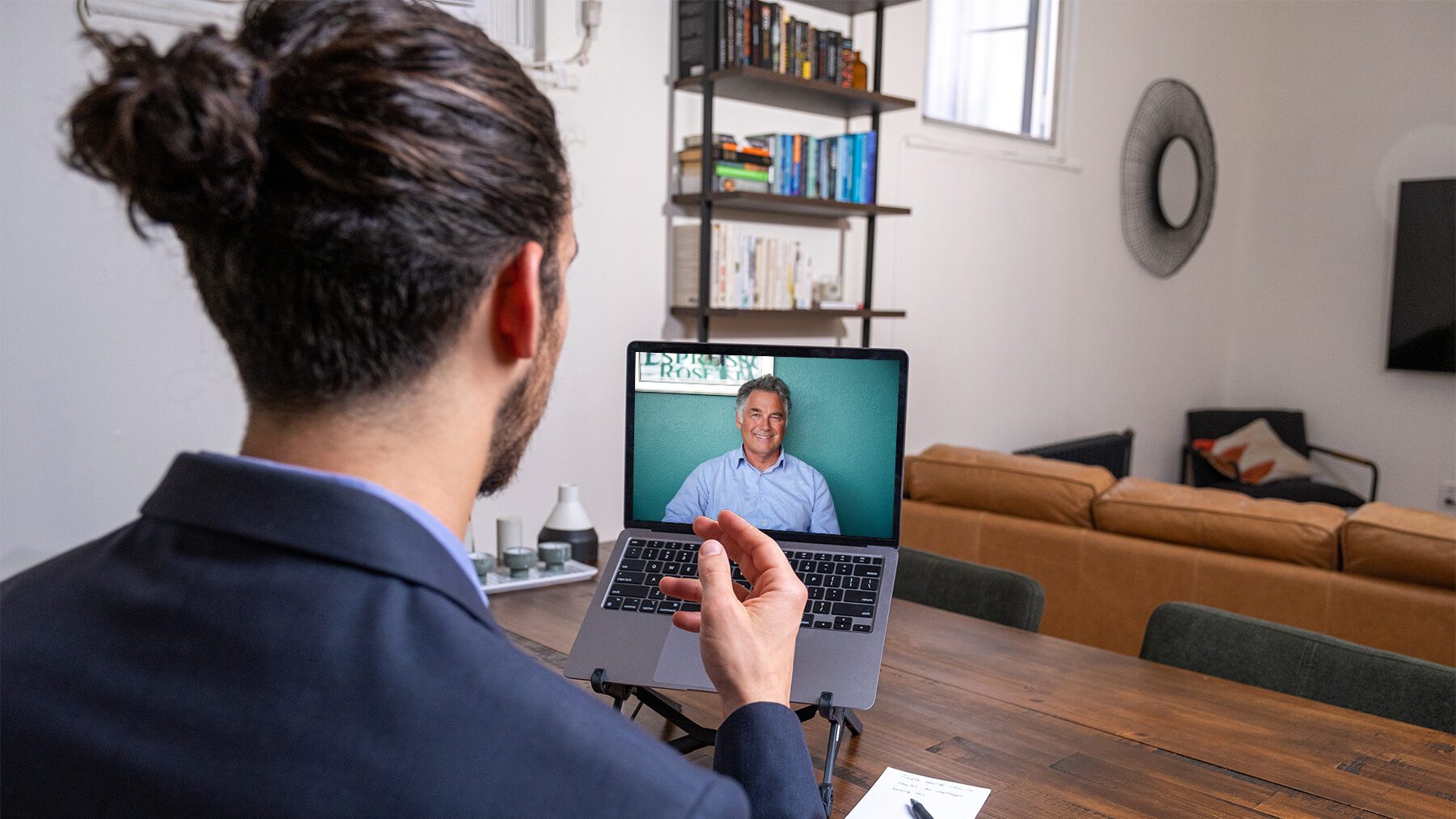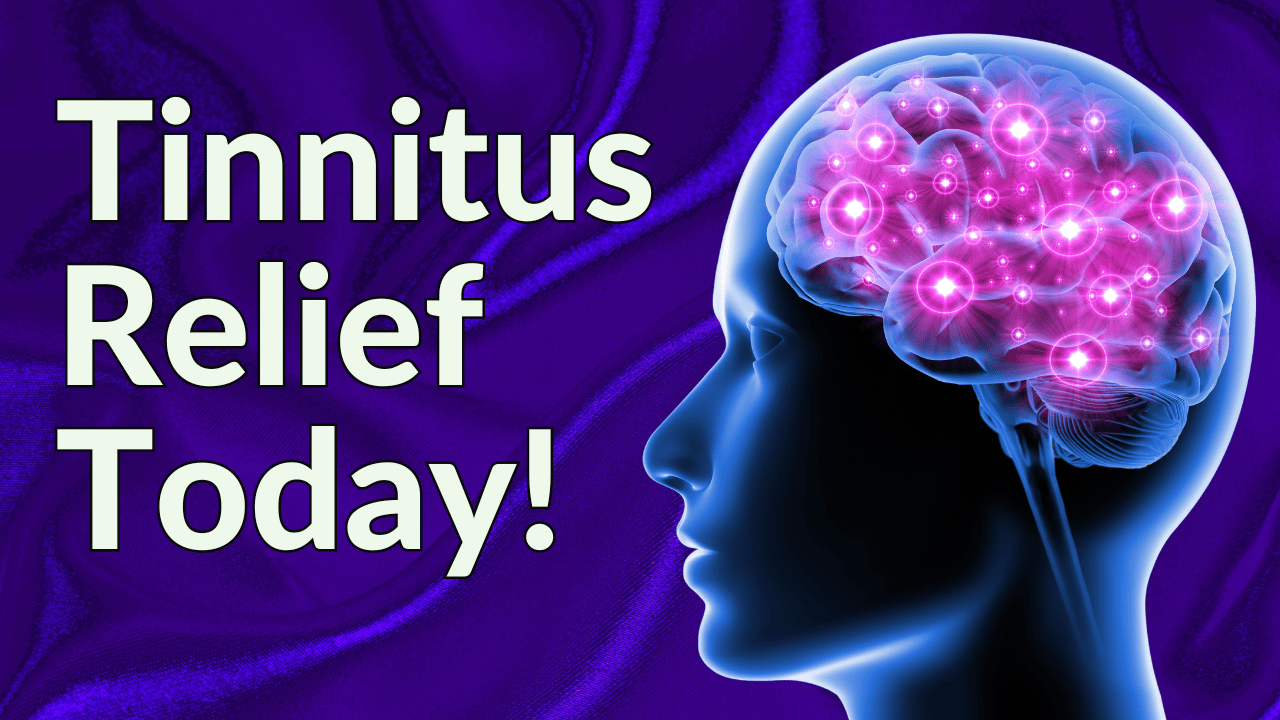Progressive tinnitus management, also referred to as PTM, doesn’t simply refer to dealing with tinnitus symptoms that are progressive. Instead, PTM is a stepped-care treatment approach that was designed by the Department of Veterans Affairs (VA) to treat veterans and military personnel who suffer from tinnitus. With the help of an audiologist, anyone suffering from tinnitus can use this effective technique and finally find relief.
What Is Tinnitus?
Tinnitus is defined as the perception of sound when there is no external source, and is usually described as a buzzing, ringing, hissing or clicking in one or both ears. Most people experience momentary tinnitus – sometimes after listening to loud sounds, sudden blood pressure changes, or due to infection or injury – but it can become a chronic condition. Bothersome tinnitus, which affects daily functional life of those who experience it, affects up to 15% of people who experience tinnitus.
"Treble Health helped me reduce my tinnitus by about 80%, and now I can live my life again!"


"Treble Health helped me reduce my tinnitus by about 80%, and now I can live my life again!"
– Steve D.
Book a free consultation to learn which Treble Health solution is right for you. Join Steve and thousands more who have found lasting tinnitus relief.
In most cases, tinnitus is related to hearing loss, but there are many other causes including:
- Loud noise exposure
- Illness and infection
- Earwax blockage
- Head and neck injury
- Ototoxic medications
- Muscular, joint, or jaw pain
- Chronic conditions like high blood pressure and diabetes
- Stress, anxiety, and mental health
Hearing Loss And Tinnitus In Veterans



Loud noise exposure is a major concern among service members, and it’s one of the leading causes of hearing damage and chronic tinnitus. Research shows that exposure to loud noises like gunfire, machinery, aircrafts, and other loud sounds increase this risk by 63% when compared to civilians. In fact, tinnitus is reported to be the number one disability among veterans.
Because tinnitus is so prevalent in this population, it’s no wonder the Department of Veterans Affairs has worked to find an effective, efficient, and customizable approach to symptom management.
Origins Of Progressive Tinnitus Management
The Veterans Health Administration (VA) Rehabilitation Research and Development (RR&D) National Center for Rehabilitative Auditory Research (NCRAR) was founded in 1997. This organization’s goal is to use ongoing clinical research and technology to improve the quality of life for veterans and other people with hearing problems. Some of their health service research has focused on clinical management protocols and clinical implementation of tinnitus treatment, resulting in progressive tinnitus management.
Progressive tinnitus management is a relatively new approach to tinnitus management. Developed in the early 2000s, ongoing research and practice has refined this multidisciplinary technique and is shown to be very effective. Recently, a telehealth (remote) version called Tele-PTM was developed.
The definitive text on this technique, Progressive Tinnitus Management: Clinical Handbook for Audiologists, was written by:
- James Henry, PhD (VA Research Career Scientist at the National Center for Rehabilitative Auditory Research (NCRAR))
- Tara Zaugg, AuD (research audiologist at the NCRAR)
- Paula Myers, PhD (Chief of the Audiology Section and Cochlear Implant Coordinator at the James A. Haley VA Hospital in Tampa, Florida)
- Caroline Kendall, PhD (research psychologist at the VA Connecticut Healthcare System in West Haven Connecticut)
How Progressive Tinnitus Management Works
The key to progressive tinnitus management is coordinating care between audiology and behavioral health to approach tinnitus. Ideally, PTM services will be a joint effort between audiology and psychology, with inclusion of otolaryngology, psychiatry, and other medical disciplines as needed. Audiologists are essential for providing clinical tinnitus services; one of their primary roles is to provide quality education.
There is no known cure or medication for tinnitus, so the focus of PTM is to teach patients how to manage their reactions to tinnitus and improve their own quality of life. Identifying and breaking down these barriers helps bring patients closer to relief.
Intervention with PTM specifically involves activities designed to reduce reactions to bothersome tinnitus. With PTM, there is no attempt to alter the tinnitus sound or perceived loudness — rather, patients learn basic ways to protect and conserve their hearing in order to minimize the risk of worsened tinnitus symptoms.



Progressive tinnitus management is a unique approach:
- It emphasizes collaborative work between patients and doctors, leading to self-management.
- The style and use of sound therapy can be customized to individual needs.
- Cognitive behavioral therapy (CBT) and mental health services are included as part of this program.
- Evidence-based principles of patient education and health literacy are essential.
- Using multiple treatment and education techniques helps round out the patient’s understanding of PTM and tinnitus.
Understanding The Five Levels Of Progressive Tinnitus Management
There are many approaches to managing tinnitus – hearing aids, sound therapy, behavioral health care, tinnitus retraining therapy, and others – and progressive tinnitus management uses a tiered approach.
There are five levels of PTM, and as these levels increase, it will include a greater intensity of clinical services. Patients only progress to the level they need, and going from lower to higher levels become increasingly more personalized.
Level 1: Triage or Referral
Before you begin any treatment, your symptoms will be triaged (assessed to determine the urgency or severity of your tinnitus) or you will be referred by your doctor. Tinnitus triage guidelines can be used to help guide referral practices for clinicians and make sure patients are in need of progressive tinnitus management services and are directed to the correct providers.
Level 2: Audiologic Evaluation
Hearing loss is a common cause of tinnitus, so at this point, your audiologist will determine if there is a need for intervention, either from an audiologist or your physician. Your audiologist will also administer a Hearing and Tinnitus Survey, fit hearing aids or begin sound therapy, and estimate the impact tinnitus has on your quality of life. In many cases, hearing aids can have a drastic positive improvement on tinnitus distress.
Another part of Level 2 involves testing for a sound tolerance problem using an evaluation called STEM (Sound Tolerance Evaluation and Management). Hyperacusis or misophonia are common among people with hearing loss or tinnitus, so your audiologist may prescribe ear-level devices (noise generators or a combination of other instruments). Once sound tolerance is under control, then it is determined whether the patient should continue to receive tinnitus-specific clinical services
Level 3: Group Education
This is the first level in PTM in which patients receive focused intervention for their tinnitus problem. This level teaches patients how to use sound and coping techniques to manage reactions to tinnitus. This section also focuses on developing and implementing individualized plans for using sound therapy and cognitive behavioral therapy (CBT). This is a cost-effective and time-efficient process, and most people feel a positive sense of camaraderie from the supportive group work.
Level 4: Interdisciplinary Evaluation
Assessments by both an audiologist and a psychologist (or other mental health provider) determines how much more support the patient needs at this point. The psychologist’s assessment should include screening for mental health conditions that may need to be addressed first. Screenings typically include questions about sleep, depressed mood, and other significant life stressors that may be contributing to the patient’s difficulty coping with tinnitus.
Level 5: Individualized Support



Finally, patients can benefit from ongoing appointments with an audiologist or mental health provider. This one-on-one support can be helpful for clarifying the goals of these tinnitus interventions and emphasize a team approach to tinnitus care. The PTM approach is based on the understanding that tinnitus management is not just about finding a cure but helping individuals adapt to and cope with their symptoms through a tailored treatment program that supports tinnitus outcomes.
Research Exploring Progressive Tinnitus Management
One study explored how patients used progressive tinnitus management Level 3 skills after education. Six to ten years after completing their PTM workshops, approximately 69% of veterans in the Bay Pines Veterans Affairs Healthcare System reported an improved ability to control their reactions to tinnitus. At least half of participants said they had an improved sense of well-being and 88% of participants said they would recommend PTM to someone with bothersome tinnitus.
Another study considered factors affecting the implementation of PTM in Department of Veterans Affairs medical centers. Surveys from 87 audiologists and 66 mental health clinicians revealed that few facilities offered all PTM levels. The majority of these facilities offered partial PTM or no PTM at all. The study was able to identify barriers that impacted these facilities’ ability to offer progressive tinnitus management services:
- Availability of resources
- Service collaboration
- Prioritization
- Veterans’ preferences and needs
- Clinical training
- Awareness of evidence-based tinnitus treatment options
- Perceptions and scope of PTM
Telehealth-Based Progressive Tinnitus Management
Because not all Veterans Affairs facilities offer PTM, you may wish to consider telehealth treatment. Telehealth services are medical visits that can be done virtually and these are a good option for people who cannot meet their doctors in person. These kinds of appointments can include consultations, medication monitoring, mental healthcare, and other types of care.



Not all audiology visits can be done via telehealth, but tinnitus care typically can. When people with tinnitus cannot meet with an audiologist in person, telehealth options can provide not only continuity of care, but also treatment.
If you decide to pursue telehealth treatment for progressive tinnitus management, you must qualify for the Tele-PTM program through an audiologic evaluation and a mental health screening.
- After completing the first levels of PTM in person (which may include fitting a hearing aid), seeing an audiologist allows higher levels of progressive tinnitus management to be delivered remotely.
- Tinnitus patients would also undergo mental health evaluation to rule out mental health risk factors. Any mental health conditions that require treatment would indicate that telehealth is not the best option for progressive tinnitus management.
- For level 3, an audiologist will provide two sessions of training on how to use sound therapy for tinnitus. A mental health provider will deliver three sessions using CBT.
- If Level 5 PTM is needed, counseling can include acceptance and commitment therapy (ACT), mindfulness therapy, and tinnitus retraining therapy (TRT).
Finding The Right Treatment For You
No matter if you’re a veteran or a civilian, it’s important to find the tinnitus clinical services that work best for you. There is no cure for tinnitus, so VA audiologists at the National Center for Rehabilitative Auditory Research are constantly working toward discovering new ways to provide tinnitus services that are effective and efficient.
If progressive tinnitus management isn’t right for you, there are doctors and audiologists who can help you in other ways. Consider talking to mental health providers, audiologists, or your physician for advice. Many people find that adding relaxation exercises, deep breathing, and other mindfulness techniques into their arsenal of coping skills helps turn down tinnitus – with or without a leveled treatment approach.
Next Step: Book Free Consultation
- 75% of patients reduced their tinnitus within three months after following our recommendations.
- "I feel like Treble Health literally gave me my life back." - Randy S. (verified customer)
- Join thousands of people who have reduced their tinnitus after scheduling a free consultation.




















